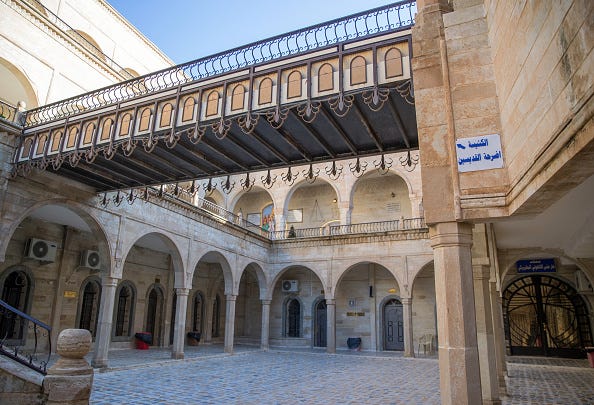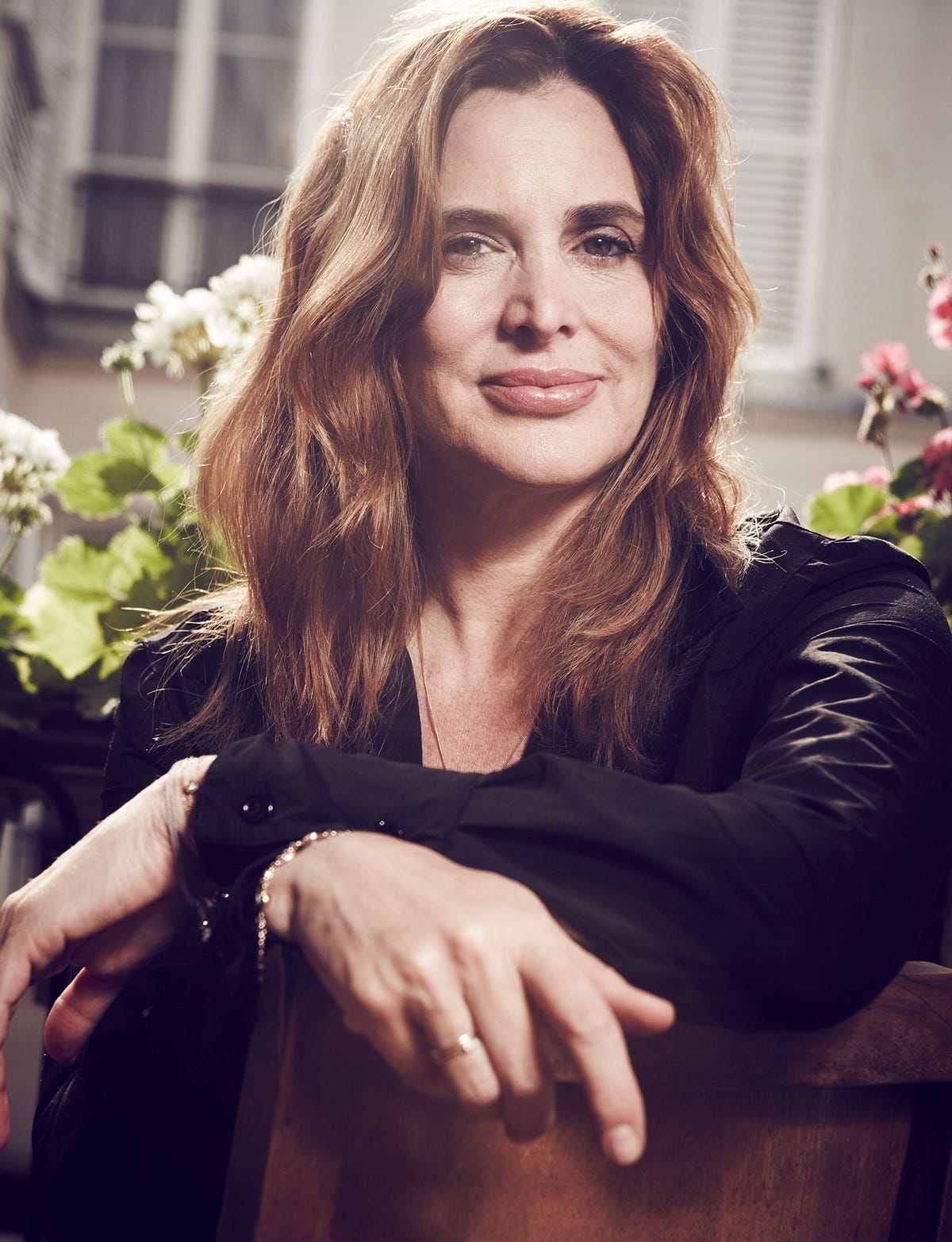War Reporter and Author Janine di Giovanni on the Scourge of Extremism
ISIS Ruination of Christians in the Middle East and New Ethnonationalist Threats in the Balkans
I'm pleased to bring you this interview with Janine di Giovanni, who is a Senior Fellow at Yale University’s Jackson Institute for Global Affairs and an acclaimed journalist who has covered war from more than 30 countries. A Guggenheim Fellow and recipient of the 2020 Blake Dodd prize from the American Academy of Arts and Letters, she is the author of the award-winning bookThe Morning They Came For Us: Dispatches from Syria. Her latest book is The Vanishing. Faith, Loss, and the Twilight of Christianity in the Land of the Prophets (2021). Our conversation took place on January 22, 2022, and has been edited for clarity and flow.
Ruth Ben-Ghiat (RBG): I'm thinking a lot these days about memory and things that disappear: facts, histories, democracies, ecosystems, people, and entire cultures and ways of life. Your book, The Vanishing, is a poignant and personal look at the decline of Christian communities in the Middle East. Can you talk about what is driving this decline?
Janine di Giovanni (JDG): During the occupation of Iraq in 2003, I was working in Baghdad and I got permission to go up to the north, to the Nineveh Plain. There I first came across Christian communities and what really struck me was that they had endured so much persecution but they still remained in their ancestral lands.
I decided to look at Christian communities in Gaza, Syria, Iraq and Egypt, and why they stayed in their ancestral lands, despite all of the challenges they faced. One common threat to Christians is the rise of extremism: radical groups, like the Islamic State, who want to destroy their cultures, faith and livelihoods. When the Islamic State left Nineveh, they burnt the farms as a kind of horrible price of war, ruining many of these Christian farmers.
But there are also other issues that affect all inhabitants of those areas, like climate change. The Middle East is warming twice as fast as other places on earth, and that impacts rural communities, where many Christians live. The result is dwindling communities. When Saddam Hussein was in power, there were 1.5 million Christians in Iraq. Today, the population is estimated at around 150,000. It's very alarming.
RBG: This is the end of what were once vibrant multi-faith spaces with interesting cross-cultural synergies.
JDG: Look at the Jews of Iraq. This was a really important community. The creation of the state of Israel in 1948 was partly a cause of the end of that community. I remember in 2003 being with a Jewish colleague and trying to find the last few families left in Baghdad. It went from an extremely vibrant community to 1 or 2 families.
I think this is what Christians fear the most: the end of their culture. If you are in Syria and go to Mass and hear Syrian Christians praying in Aramaic, which was the language of Jesus Christ, that's so moving. In Gaza, there are only 800 Christians left from what was once an entirely Christian place until the fourth century. I really wanted to write The Vanishing to have a living record of these communities.
RBG: The built environment of those communities, like churches and monasteries, has also suffered. I know the Islamic State ruined many of them.
JDG: I write about going to a monastery called Mor Mattai, which is kind of carved into a mountain, a dozen or so miles from Mosul. ISIS never got there and several dozen families sheltered for two years of ISIS's reign.

In 2017, after ISIS fell, I went back to the monastery and the people were gathering and celebrating, but it wasn't a joyful thing. It was almost as though they were celebrating how closely they had come to being eradicated.
Because they knew how many other sites had been destroyed. So many churches burnt, crucifixes literally torn from the steeples. ISIS wanted to trample on their faith, destroy the stones, the iron work, the pictures of the saints.
It eerily reminded me of ethnic cleansing in Bosnia during the Balkan Wars of the 1990s. After a village had been ethnically cleansed, you'd go inside and see photographs and the Serbian soldiers who had gone through had tried to scratch out the faces of the people in them, almost as if to say "you don't exist." It's very haunting.
RBG: I have a line in my book that says "Strongmen disappear people, and they also disappear knowledge that conflicts with their ideologies and goals." It’s the same with extremist movements.
JDG: ISIS's real aim was to basically wipe Christians, and even non-pious Muslims, off the face of the earth. Anyone who did not adhere to their intensely vigilant and rigorous interpretation of Islam was not supposed to exist.
RBG: You mentioned Bosnia and I want to ask you if you see an escalation of extremism there, now that far-right nationalists like Serbian head of state Aleksandar Vučić have taken over. Do you see the region becoming more destabilized?
JDG: I'm very concerned about Bosnia right now. The Dayton Peace Accords, which ended the civil war in 1995, were flawed. The agreement did end the fighting, but it didn't account for transitional justice concerns, and it basically revived ethnonationalism by creating the Serb Republic and the Bosnian Federation —although "revived" is the wrong word for something that never really went away.
And so now we've got extreme leaders like Vučić and Bosnian Serb leader Milorad Dodik, who are really fanning the flames to try to revisit this animosity.
For anyone that lived through the war from 1992 to 1995 --I was in Sarajevo and central Bosnia throughout that time-- it's a terrifying thing to think about. In central Bosnia now you have two schools under one roof: one for Catholics and one for Muslims, with different hours.
Before the war, you'd be really hard pressed to find someone in Sarajevo who would call themselves a Muslim or a Croat or a Serb. They were Yugoslavs. Tito held them together, perhaps in the wrong way. But once Tito died, that set the stage for a terrible war of aggression in Bosnia.
I just feel that the climate that we're in now, with the rise of right-wing strongmen throughout the region, increases the potential for civil wars to erupt again.
RBG: You have reported from societies undergoing a breakdown and starting civil wars. You have seen first-hand how communities can turn against each other. How do you see the United States right now? Do you think that the notion that we are heading towards some kind of sectarian conflict is overblown?
JDG: Right before the 2020 election, I wrote a piece for Medium about how America had many of the early warning indicators for civil war. The erosion of democracy, and disregard for the rule of law—the Trump family felt the law didn't pertain to them. I was very worried then, because I thought the polarization was so extreme. This was pre-January 6th.
30 years of reporting and spending a lifetime in war zones has made me extremely cautious. I have seen wars start and I see how quickly things can spiral from an insurrection, coup, assassination or an election gone haywire, like when an official is announced the winner but shouldn't have been.
Yet I do think that our institutions are strong enough to suppress a civil war. We have to remain vigilant, but I do believe that democracy can prevail.





I admire her optimism that our institutions are strong and if we remain vigilant democracy can still prevail.
Excellent. Thank you. 👏👏